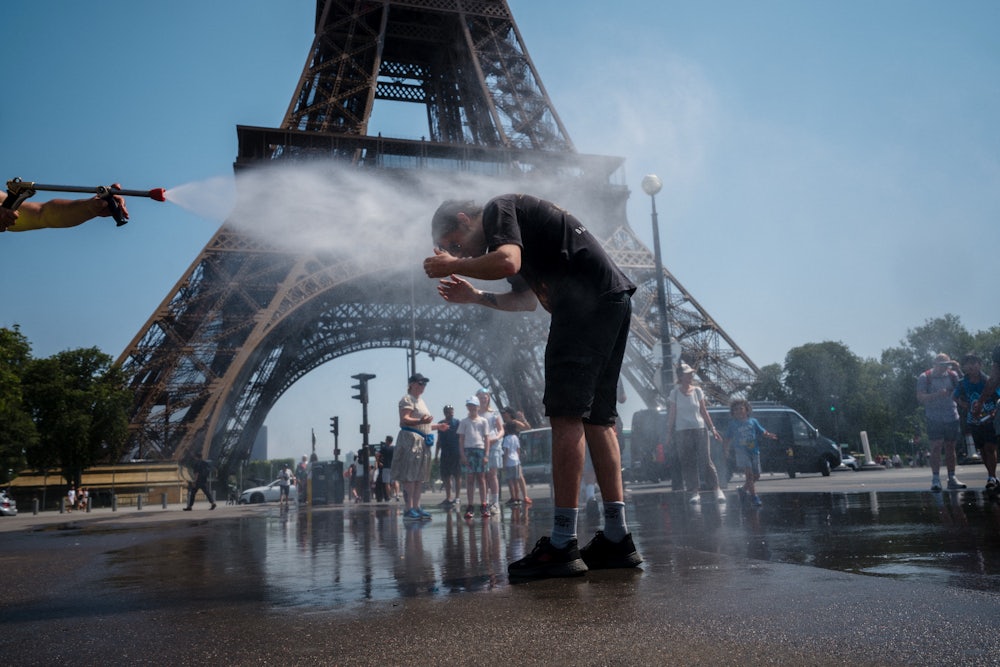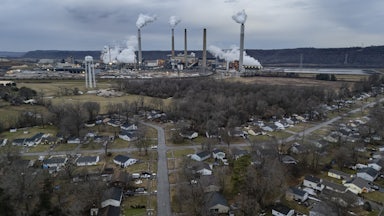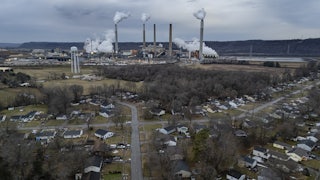Teaching summer school in humid New York City in July, when many of my friends and relatives are Instagramming from the beach, I stave off vacation envy by daydreaming of future summer idylls. Lobster rolls and rocky beaches in New England as soon as next month? Summer 2026 in sunny Spain, eating tapas and wandering through fourteenth-century mosques and churches?
Maybe—but also maybe not. Sadly, climate change is taking a toll on both vacation and its delicious anticipation, by wrecking some of the world’s most delightful destinations.
“Climate change is changing Europe into a summer paradise lost,” The New York Times reported in a grim dispatch from Barcelona this week. “Across Spain, Italy, Greece, France and beyond, sand-devouring storms, rising seas, asphyxiating temperatures, deadly floods and horrific wildfires have year after year turned some of the continent’s most desired getaways into miserable locales to get away from.”
Near-perfect weather is part of what makes a summer paradise, and in sweltering heat, even the cultural attractions aren’t quite as inviting. For events such as the Avignon Festival, a destination for theater fans in southern France, temperatures surpassing 100 degrees are becoming “an existential threat.” “But Spain,” the Times added, “has become the least fun in the sun destination.” Temperatures in some southern locales there have reached 115 degrees lately, and efforts to escape the heat by going to the beach are complicated by the fact that erosion and coastal flooding are, in some places, devouring tens of thousands of square miles of sand.
Mind you, ruined vacations are among the least of the problems caused by climate change; officials in Spain estimate that heatwaves have caused 1,180 deaths over the last two months. But given the prevalence of climate denialism in the United States, and the challenge for activists, scientists, and policymakers of connecting global warming’s impact on people’s everyday lives, the damage that it’s wreaking on our treasured—and stingily provided—vacation time could be a decisive factor in swinging public opinion toward urgent action.
Yes, it’s true: Cote d’Azur is hardly a MAGA hotspot anyway. But consider idyllic destinations closer to home—like Cape Cod, which is also plagued with coastal erosion and sea level rise. Parts of the Cape are losing as much of three feet of beach a year. Climate change is also threatening a cherished delight of travelling to such places: eating seafood. Warming waters are increasing infections among marine life, making it risker to eat oysters, for example. Vibriosis, a blanket term for a wide range of such infections, can cause diarrhea in humans—enough to ruin your vacation (and in some rare cases, for people with weaker immune systems, it can cause gangrene or even death).
Another iconic summer spot near me, the Jersey Shore, is also at risk, especially from flooding due to rising sea levels and more frequent storms. By the middle of this century, that area may see sea levels rise as much as two feet, resulting in more high-tide flooding; by the end of the century, Atlantic City is likely to be flooded some 95 days a year.
It’s hard to find a famous summer destination that isn’t profoundly affected. On North Carolina’s Outer Banks, houses have been collapsing due to coastal erosion (and going viral). Last summer, the debris from several such collapses resulted in beach closures; and even when the beach opened, in one case, visitors were advised to “wear hard-soled shoes … as pieces of debris continue to wash ashore.”
While the recent tragic flooding in Texas should obviously be that state’s immediate climate concern, summer tourism is at risk there in the long run, too. Last year, a study found that if climate change continues unchecked, the popular island of Galveston wouldn’t be around in the future: With its sea levels rising as much as eight feet by 2100—now rising by about an inch every year—Galveston would be underwater within a couple generations, and uninhabitable even sooner. The problems are already clear, as extreme storms, high-tide flooding, and heavy rains occur more often there every year.
The global labor movement had to fight for summer vacation. In Europe, the long summer break remains a great working-class triumph. Few Europeans had vacations before World War I, but trade unions and democratic socialists fought for them throughout the twentieth century. As workers and their institutions gained power, they found out that employers were often more willing to concede on paid vacation time than on other demands; bosses could use additional vacation as an incentive for better performance, breaks could coincide with seasonal slowdowns, so as not to hurt the businesses, and there is even some evidence that vacations boost productivity at work. In the European Union, bosses must allow workers at least a month off; France, Austria, Denmark, Finland, Norway, Spain and Sweden go further, mandating that workers must get five weeks of vacation.
In the United States, while the labor movement certainly did fight to include vacation time in union contracts, union membership has been steadily declining for decades. Today, the anecdotal evidence of my Instagram feed notwithstanding, America has been called the “no vacation nation,” as we get less vacation time than most other developed countries. There is no federal law requiring that workers get any vacation at all, and on average, Americans get about eleven days off; with no legal enforcement of vacation rights, almost half don’t even end up taking what little vacation time they may have on paper. (There are a combination of reasons, with workers citing bosses who don’t like to give time off, fear of falling behind, fear of getting fired, and other issues.)
Our lack of vacation time isn’t discussed much, compared to health insurance, paid family leave, or low wages, but it’s worth reviving the issue, especially in this polarized moment. After all, who doesn’t love getting away from work? But the new fight for vacation must also be a climate fight. Let’s win more summer vacation for all, but also make sure that when we do get to take our hard-earned break, we’ll still have somewhere pleasant to go.






